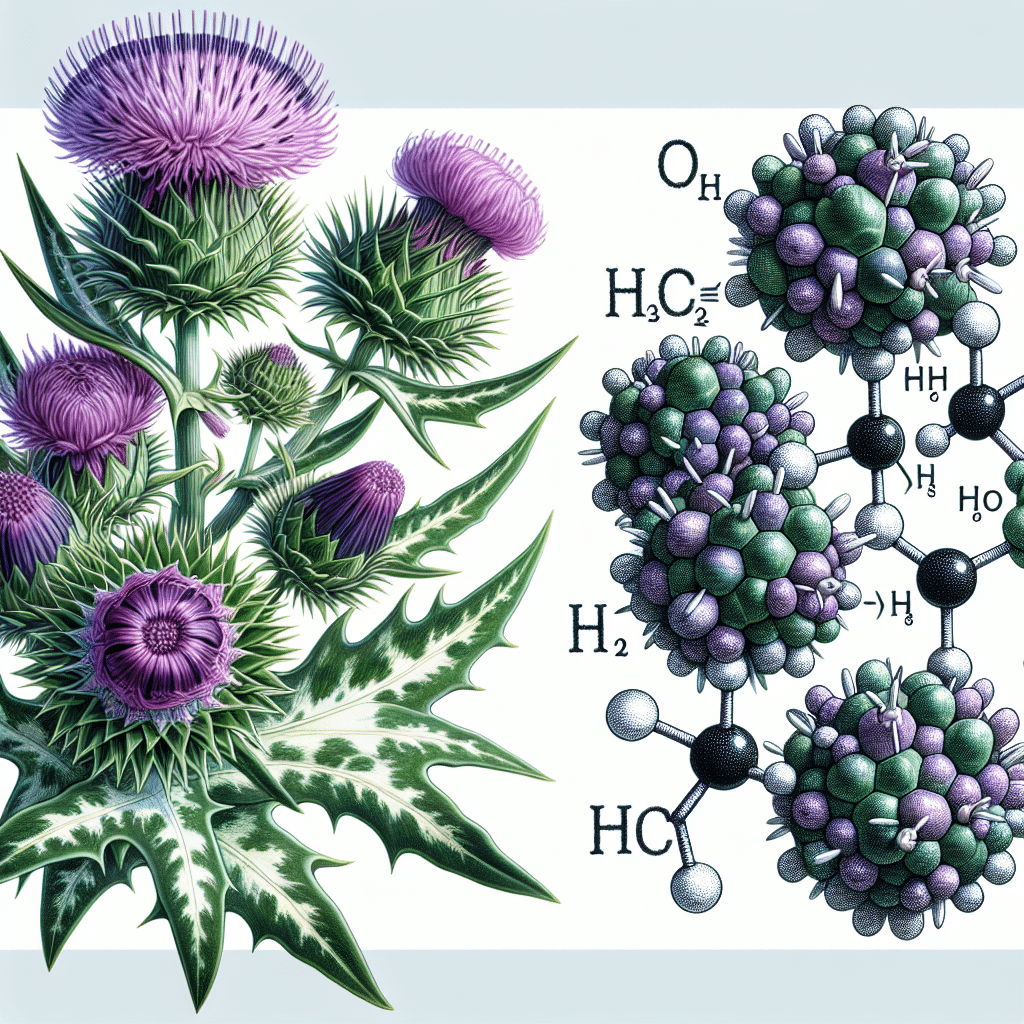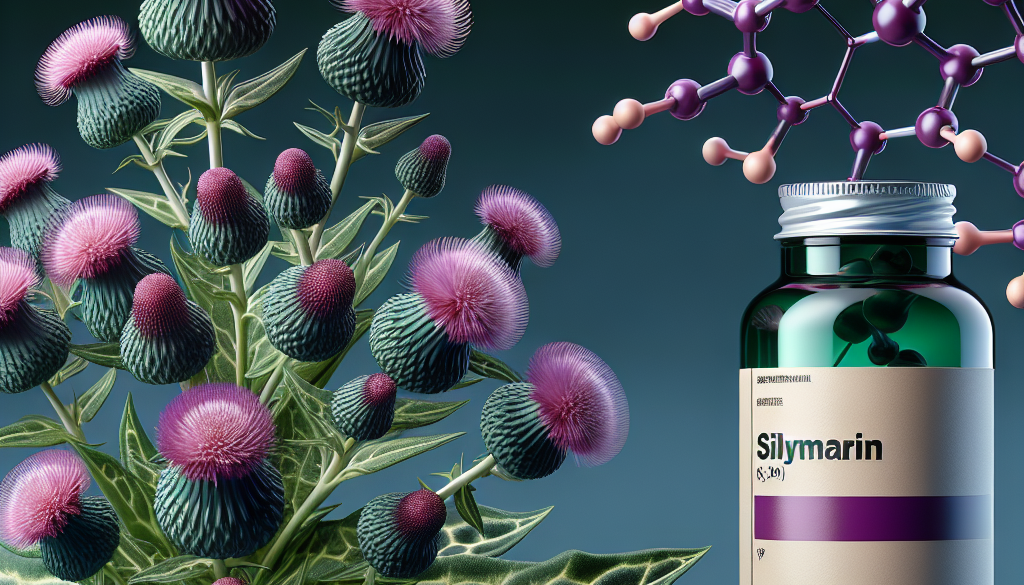Is Milk Thistle and Silymarin the Same?
-
Table of Contents
- Milk Thistle and Silymarin: Understanding the Difference
- What is Milk Thistle?
- What is Silymarin?
- Are Milk Thistle and Silymarin the Same?
- The Benefits of Milk Thistle and Silymarin
- Scientific Research on Milk Thistle and Silymarin
- Case Studies and Statistics
- How to Use Milk Thistle and Silymarin
- Potential Side Effects and Interactions
- Conclusion: Key Takeaways
- Discover ETchem’s Protein Products
Milk Thistle and Silymarin: Understanding the Difference

When it comes to herbal supplements, clarity is key. Milk thistle and silymarin are often mentioned together in discussions about liver health and detoxification, but are they the same thing? This article delves into the relationship between milk thistle and silymarin, exploring their uses, benefits, and the science behind them.
What is Milk Thistle?
Milk thistle, scientifically known as Silybum marianum, is a flowering plant native to Mediterranean countries. It has been used for over 2,000 years as a natural remedy for various ailments, particularly liver problems. The plant is easily recognizable by its purple flowers and white-veined leaves, which appear to have been splashed with milk.
What is Silymarin?
Silymarin is a compound found within the seeds of the milk thistle plant. It is a flavonolignan complex that includes several active constituents, such as silybin, silydianin, and silychristin. Silymarin is the component of milk thistle that is largely responsible for its medicinal properties, especially its hepatoprotective effects.
Are Milk Thistle and Silymarin the Same?
While milk thistle is the plant itself, silymarin is the bioactive compound extracted from the plant’s seeds. Therefore, they are not the same, but they are closely related. Silymarin is the primary active ingredient in milk thistle supplements and is often used interchangeably with the term milk thistle in the supplement industry.
The Benefits of Milk Thistle and Silymarin
- Liver Health: The most well-known benefit of milk thistle and silymarin is their support for liver health. They are believed to protect the liver from toxins, promote liver cell regeneration, and reduce inflammation.
- Antioxidant Properties: Silymarin has antioxidant properties that help fight free radical damage in the body, which can lead to chronic diseases.
- Anti-inflammatory Effects: Both milk thistle and silymarin have shown anti-inflammatory effects in various studies, which can be beneficial for reducing the risk of several health conditions.
Scientific Research on Milk Thistle and Silymarin
Research has been conducted to explore the therapeutic potential of milk thistle and silymarin. Studies have looked into their effects on liver diseases such as cirrhosis, hepatitis, and liver cancer. While results are promising, more research is needed to fully understand their benefits and mechanisms of action.
Case Studies and Statistics
Several case studies have reported the successful use of milk thistle and silymarin in treating liver-related conditions. For instance, a study published in the “World Journal of Hepatology” found that silymarin significantly improved liver function in patients with alcoholic liver disease. However, it’s important to note that individual results can vary, and these supplements should not replace conventional medical treatment.
How to Use Milk Thistle and Silymarin
Milk thistle can be consumed in various forms, such as capsules, tablets, powders, and teas. The dosage of silymarin in these supplements can vary, so it’s essential to follow the manufacturer’s instructions or consult with a healthcare provider.
Potential Side Effects and Interactions
While milk thistle and silymarin are generally considered safe, they can cause side effects in some individuals, such as gastrointestinal upset, allergic reactions, and headaches. They may also interact with certain medications, so it’s crucial to consult with a healthcare professional before starting any new supplement.
Conclusion: Key Takeaways
Milk thistle and silymarin are not the same, but they are intrinsically linked. Silymarin is the active compound in milk thistle that contributes to its health benefits, particularly for liver health. While scientific research supports their use, it’s important to approach these supplements with caution and under professional guidance.
Discover ETchem’s Protein Products
If you’re interested in enhancing your health regimen, consider exploring ETchem’s range of protein products. Their high-quality collagens are perfect for those looking to support their overall wellness, including liver health.
About ETChem:
ETChem, a reputable Chinese Collagen factory manufacturer and supplier, is renowned for producing, stocking, exporting, and delivering the highest quality collagens. They include marine collagen, fish collagen, bovine collagen, chicken collagen, type I collagen, type II collagen and type III collagen etc. Their offerings, characterized by a neutral taste, instant solubility attributes, cater to a diverse range of industries. They serve nutraceutical, pharmaceutical, cosmeceutical, veterinary, as well as food and beverage finished product distributors, traders, and manufacturers across Europe, USA, Canada, Australia, Thailand, Japan, Korea, Brazil, and Chile, among others.
ETChem specialization includes exporting and delivering tailor-made collagen powder and finished collagen nutritional supplements. Their extensive product range covers sectors like Food and Beverage, Sports Nutrition, Weight Management, Dietary Supplements, Health and Wellness Products, ensuring comprehensive solutions to meet all your protein needs.
As a trusted company by leading global food and beverage brands and Fortune 500 companies, ETChem reinforces China’s reputation in the global arena. For more information or to sample their products, please contact them and email karen(at)et-chem.com today.




